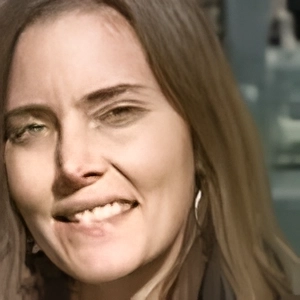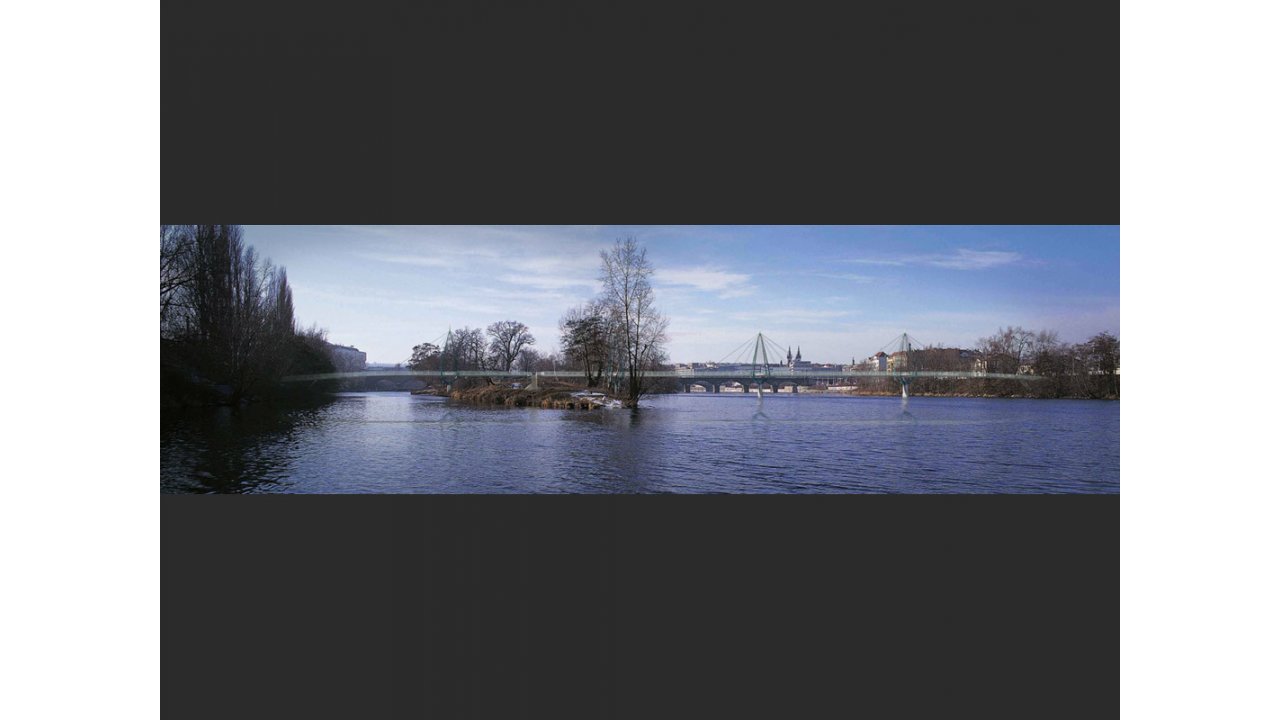**for the first part of the interview, click here**
Are there any particular type of projects you like working on more than others?
Bridges. Because it’s an object and I love the structural engineering aspect of architecture and the connection – the overlap – of those two professions. The collaboration is the most interesting because the architect and structural engineer are so close the project has to be kind of absolutely perfect on both sides. It is really the best part of the collaboration of those two professions. So if you work with really good structural engineers it really is a fantastic experience to do something that is also architecturally interesting.
You’re famous for your glass and steel staircases: have you ever had clients request them specifically?
Oh, yes, all the time. Very often we just do a staircase in someone’s house. We only do it if it is a big staircase. At the moment we are doing a big staircase in London in Somerset House. We are also doing the reception and galleries on the ground floor. We are doing a mega staircase – six stories – made from a material we have never used before. It is not a glass staircase, it is a kind of special type of concrete with organic fiber.
You went to the UK in 1968 – tell me the story of how you came to be there?
There was a congress of architects in 1967 in Prague and I met a deputy architect of GLC (Greater London Council) and he came to my office in Prague and he said ‘wouldn’t it be a nice idea to have an exchange so we can have a British architect working in Prague and you could come to London’. I was delighted but it took me a year to get all the work permits and permission to leave the country and so I came on the first of August and the invasion took place on the 21st of August. And, I guess, because I was a member of the society for the protection of human rights, the Czech Embassy wrote me that they didn’t want me back, they abolished my passport and made me stateless overnight.
So I couldn’t go back. And then my brother who was picking strawberries in order to earn some money to take an English course because he wanted to go to university – he was much younger than me ¬– said he wasn’t going back because they would send him to do army service. But we thought it was going to be a temporary arrangement. I couldn’t possibly imagine, in my naivety, that it would last for twenty-two years.
But I think it was a piece of light because I had a chance to work within those twenty-two years. I had to work extremely hard and I always did – I love working and I had a chance to start my own firm, which not very many people do, so I think I’m just entirely grateful. And as soon as I could I came back to Prague [in 1990], I just tried to pass on my experience to as many people who want to listen [laughs] as best I could.
What was the transition like in those first years – what was your English like?
I do remember that when I went to the home office to apply for a work permit, there was a Scottish girl, and she said to me [slowly, exaggerating the emphasis of each word] DO-YOU-SPEAK-ENGLISH? And I do remember saying yes and that was probably the last thing I said [laughs] because, the Scottish accent, I could not understand a single word. I just sort of stared at her. I think I had some reading knowledge and I tried to learn some English and French before I left because I always tried to learn languages and I spoke Russian because I was sent as a punishment to Russian grammar school so languages are something I love as much as I do architecture, unfortunately I’m not very good in them [laughs]. You can’t actually learn a new language properly unless you live in a country for at least five or six years. All the nuances, being able to understand the humor, it takes a long time.
So was it difficult for you when you knew you weren’t going back to your country?
I think I am the type of person [who is resilient], because my life even as a child was never easy. I was born in Zlín, so when I was four years old they moved us to a home outside Prague after Zlín was bombed. So my father and two other architects were sent to this little building outside Prague to work on a reconstruction project for Zlín, then my father was asked to leave because Zlín was nationalized, but we couldn’t go back and so we moved to Prague. And then I went to one school because my father never joined the communist party so he never had a permanent job so we travelled a lot. Then my brother was born when I was 12 years old. We lived in a building just opposite Letná – we watched the Stalin monument being built – and then the members of the ministry of interior tried to make a fortress of this building where we lived so all of the families who were not members of the communist party were moved out. My mother was in the hospital delivering [my brother] and the soldiers came to our flat and asked my grandmother, who was looking after me and my sister, to leave. When my mom came from the hospital she had nowhere to go. And so I was with one grandmother and she was with the other grandmother. Then when I was trying to go to grammar school they wouldn’t let me go so I eventually had to go to a Russian grammar school.
I’m not complaining, I think it probably made me what I am, so I’m grateful for all the experience – I didn’t suffer, I wasn’t tortured. So somehow if I can’t do something I don’t just sit in the corner and cry, I just get on with it. And I love my job and I was always lucky to work, I always had friends. So yes, I was sad I couldn’t go back and I assumed I’d never be able to go back – initially I thought it was only for a short time and eventually I thought I would never be able to go back to Prague. But, I just somehow took every day as a bonus and tried to help my brother to finish his studies. He’s now running a cancer institute in Zurich. So, it was fun – 1960s and 70s London. I think I’m so lucky that I had the opportunity to live through that period and meet so many brilliant people. It was the time when making friends was so easy. There were no social barriers.
So today, where feels like home to you?
Well, when I sit on the plane going back to London, I definitely feel I’m going home. But I’m very comfortable being in Prague. I still feel my roots. I still feel that I’ve got an obligation to the country, which really made me – the country of my parents, of many of my friends, the country with a great history and tremendous talent.
Are there any types of projects that you would like to do that you’ve never done?
I think I really love projects – it goes back to Jane Drew – that have some kind of social aspect. Hence the project of the hospital [in Plzen]. Whatever it is, whether it’s a school or anything that I feel has a wider, social aspect I would love to do it. Because in my field most of the time you work for people who are lucky because they’ve got a great amount of [resources to work with] it’s not that it’s not interesting, you are solving the problem and working in the architecture field, but anything that has a social aspect is for me another bonus.
Outside of architecture what do you do?
[laughs] Pilates and yoga, so I can go up the ladder and come down again. And apart from that I’ve really go no spare time. I do teaching – at the moment I’m teaching at the Royal College of art as a visiting professor. This summer I’m in charge of the summer exhibition at the Royal Academy of Arts. I judge competitions. I do external examinations. I’m in the office from early in the morning and I finish at 8 or 10. If I can go to the opera or theater I would love to do it, but I can never plan it, so it’s usually somebody gets the tickets and invites me.
In regard to the National Library, the Jan Kaplický project that never was, is this something you think about today? What are your thoughts about it?
It’s not possible not to think about Jan Kaplický, because he was such a strong personality and of course with him you think about his project. But we are actually working on the project of the concert hall in Budějovice. If we manage to build it, god knows, because I really don’t know if they will ever find enough money. They keep saying to me I shouldn’t worry about money [laughs]. I don’t know. It’s not going to be easy to build it.
The library, it’s something that I personally believe, that to give a building another use is not easy. I’m not saying it’s impossible, but it’s not easy. That building was designed for a particular place –looking at the castle and that part of the castle was actually occupied by Havel. [laughs] It would probably look the other way now – with the present president. I definitely feel it would be a definite change in Jan’s view as well. I dare say that he would be on the same boat as I am. But that place, the library, has to be a kind of national investment, you can’t turn a library into private functions, to turn it into a museum is not financially viable, to turn it into a concert hall is very difficult because that space was really, what was inside the shell, the concert hall would completely kill that internal space. So, I find it very difficult. I think it was a magnificent project. It moved public opinion. It’s fulfilled its function because I think that so many people just suddenly started to think about architecture from a completely different angle. I think it helped people not to forget about Jan Kaplicky, which he deserved deeply.
Who knows whether we’ll manage to build this concert hall in Budějovice full stop behind his life, but whatever happens we’ll do our absolutely utmost to take it as far as possible. And Prague’s library, if it happens, it will be a miracle. But miracles do happen sometimes. But I can’t see any logical reason at the moment to believe that the building will be built, at the moment with the present government, the present president.
To have a look at some of Eva Jiřičná’s work in person, here are a few of her projects around Prague:
Hotel Josef, Rybná 20
Café B Braun, Sokolská 31
Orangery at Prague Castle
Lead photo: Matěj Slavík, Hospodářské noviny
Related articles












 Reading time: 9 minutes
Reading time: 9 minutes 

































